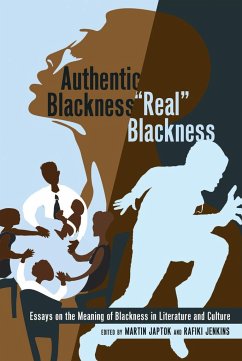
Blackness and the Color Black in 20th-Century African-American Fiction
Versandkostenfrei!
Versandfertig in 6-10 Tagen
71,80 €
inkl. MwSt.

PAYBACK Punkte
0 °P sammeln!
Nobody's skin is really black or white. Yet both terms are constantly used to classify people. Whiteness studies have revealed that 'white' must be considered as an ideological label that defines superiority and privilege. Conversely, 'black' came to mark inferiority and discrimination. This study explores how African-Americans responded to Anglo-Saxon race theory by adopting the originally demeaning assignation 'black' and turning it into the ideology of 'black' self-empowerment and racial pride. The analyses of eighteen novels from the African-American literary canon which focus on the signi...
Nobody's skin is really black or white. Yet both terms are constantly used to classify people. Whiteness studies have revealed that 'white' must be considered as an ideological label that defines superiority and privilege. Conversely, 'black' came to mark inferiority and discrimination. This study explores how African-Americans responded to Anglo-Saxon race theory by adopting the originally demeaning assignation 'black' and turning it into the ideology of 'black' self-empowerment and racial pride. The analyses of eighteen novels from the African-American literary canon which focus on the significance of the color 'black' and the concept of blackness strongly suggest the importance of blackness studies while providing a close (re)reading of major works of 20th-century 'black' fiction.












